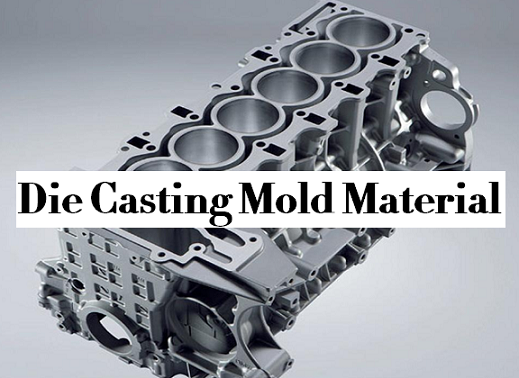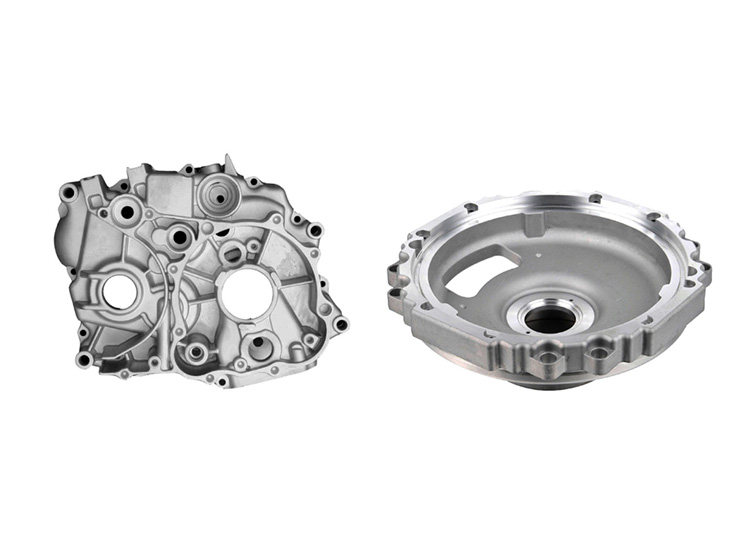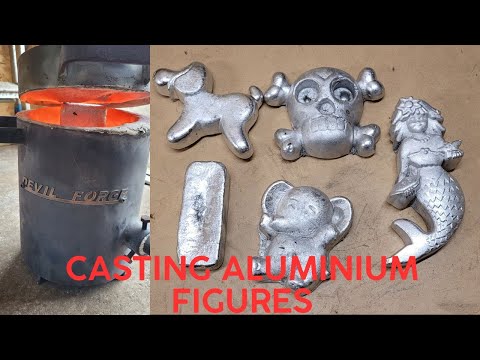What Does Stahl Specialty Company Do?
Table of ContentsThe Single Strategy To Use For Stahl Specialty CompanyStahl Specialty Company Can Be Fun For AnyoneStahl Specialty Company - Questions9 Easy Facts About Stahl Specialty Company Described5 Easy Facts About Stahl Specialty Company ShownThe Best Guide To Stahl Specialty Company

If you're making a metal product, you have actually likely considered utilizing light weight aluminum as the base material. It has a high strength-to-weight proportion, great deterioration resistance, good formability, and visual appeal. These elements have actually caused its enhanced popularity in recent times. Pure aluminum has limited applications, so it is commonly incorporated with various other components, such as silicon, magnesium, and manganese to develop alloys.
(AA), based in North America, has produced specs that control light weight aluminum alloys' composition, residential or commercial properties, and language. There are 2 kinds of light weight aluminum alloys wrought and cast.
What Does Stahl Specialty Company Do?
Cast light weight aluminum alloys are made by thawing pure aluminum and combining it with various other steels while in fluid type. Then the mix is poured right into a sand, die, or financial investment mold and mildew. After solidification, the steel is gotten rid of from its mold. At this stage, it is in either its final kind or as a billet or ingot for additional processing.

For instance, 160.0 stands for a cast with a minimum of 99.60% light weight aluminum. The 4th digit, which comes after the decimal factor, specifies if the alloy is a casting (xxx. 0) or an ingot (xxx. 1). Wrought light weight aluminum alloys additionally start by combining molten aluminum with various other steels. Unlike cast alloys, nonetheless, they are formed right into their final shape via procedures such as extrusion, rolling, and flexing after the metal has strengthened into billets or ingots.
There are many small distinctions in between wrought and cast light weight aluminum alloys, such as that cast alloys can include a lot more significant amounts of other metals than wrought alloys. The most notable distinction between these alloys is the fabrication process via which they will certainly go to provide the final item. Other than some surface area therapies, cast alloys will leave their mold and mildew in practically the exact strong type desired, whereas functioned alloys will certainly undergo numerous alterations while in their solid state.
If you think that a wrought alloy might be the finest for your project, have a look at several of our articles that clarify even more concerning particular functioned alloys, such as Alloy 6061 and Alloy 6063. On the various other hand, if you assume a cast alloy would certainly be much better for you, you can find out more about some actors alloys in our Alloy 380 and Alloy 383 articles (coming quickly).
More About Stahl Specialty Company
When choosing a light weight aluminum factory for your manufacturing needs, it's vital to study a number of aspects. Among the most vital aspects to take into consideration is the experience and skills of the factory. Aluminum Casting. Picking a shop who has the right expertise of the aluminum spreading procedure, and the portfolio to show for it, helps to have a successful result for your job
Having the experience and industry understanding to craft your castings for ideal production and high quality results will certainly streamline the job. Producing aluminum spreading needs a facility set of processes to attain the appropriate results. When selecting a brand-new light weight aluminum shop to companion with, ensure they have comprehensive market experience and are knowledgeable about all facets of the aluminum casting process: style, production, product evaluation, and product screening.
The shop must additionally have a tested record of delivering extraordinary products that fulfill or surpass customer assumptions. Quality assurance ought to likewise be at the top of your listing when selecting an aluminum factory. By working with a qualified factory that adheres to the requirements for high quality control, you can protect the integrity of your item and ensure it satisfies your specs.
By choosing a business who offers solutions that fulfill or surpass your item requirements, you can be sure that your project will certainly be finished with the utmost accuracy and performance. Various components require various manufacturing methods to cast aluminum, such as sand spreading or pass away spreading.
What Does Stahl Specialty Company Do?
Die spreading is the name provided to the process of creating intricate steel components through use of mold and mildews of the part, likewise referred to as passes away. The procedure utilizes non-ferrous steels which do not have iron, such as aluminum, zinc and magnesium, as a result of the desirable residential or commercial properties of straight from the source the metals such as low weight, higher conductivity, non-magnetic conductivity and resistance to deterioration.
Pass away spreading manufacturing is quick, making high production levels of elements very easy. It generates even more parts than any type of various other process, with a high degree of precision and repeatability. To find out more concerning die spreading and pass away casting materials utilized at the same time, continued reading. There are three sub-processes that drop under the group of die casting: gravity pass away spreading (or irreversible mold and mildew spreading), low-pressure die spreading and high-pressure die casting.
After the purity of the alloy is checked, passes away are created. To prepare the dies for casting, it is crucial that the passes away are clean, so that no residue from previous productions remain.
The smart Trick of Stahl Specialty Company That Nobody is Discussing
The pure metal, additionally understood as ingot, is contributed to the heater and maintained at the molten temperature of the metal, which is after that transferred to the shot chamber and injected right into the die. The stress is then maintained as the metal solidifies. As soon as the metal solidifies, the cooling procedure begins.
(https://www.ted.com/profiles/48419263/about)
The thicker the wall of the part, the longer the cooling time as a result of the amount of interior steel that additionally needs to cool down. After the part is completely cooled, the die cuts in half open and an ejection device pushes the component out. Adhering to the ejection, the die is shut for the following shot cycle.
The flash is the extra material that is cast throughout the process. This have to be trimmed off using a trim device to leave just the major component. Deburring removes the smaller sized items, called burrs, after the cutting process. Ultimately, the component is polished, or burnished, to offer it a smooth finish.
9 Simple Techniques For Stahl Specialty Company

Zinc is one of the most pre-owned alloys for die spreading due to its lower expense of raw materials. Its deterioration resistance also allows the parts to be long lasting, and it is one of the extra castable alloys due to its lower melting point.
As discussed, this alloy is one of one of the most generally utilized, yet manufactures will, at times, choose light weight aluminum over zinc as a result of aluminum's manufacturing advantages. Light weight aluminum is highly cost-effective and one of the much more flexible alloys. Light weight aluminum is made use of for a number of different items and sectors anything from home window frames to aerospace products.